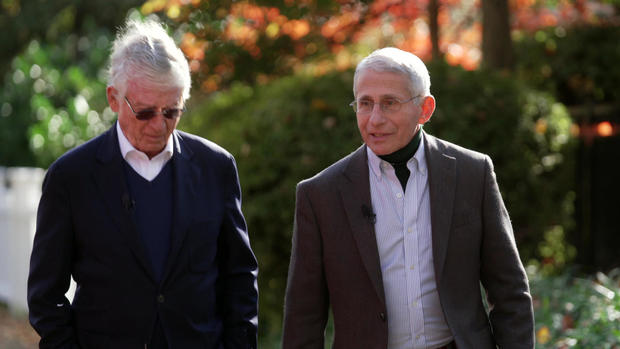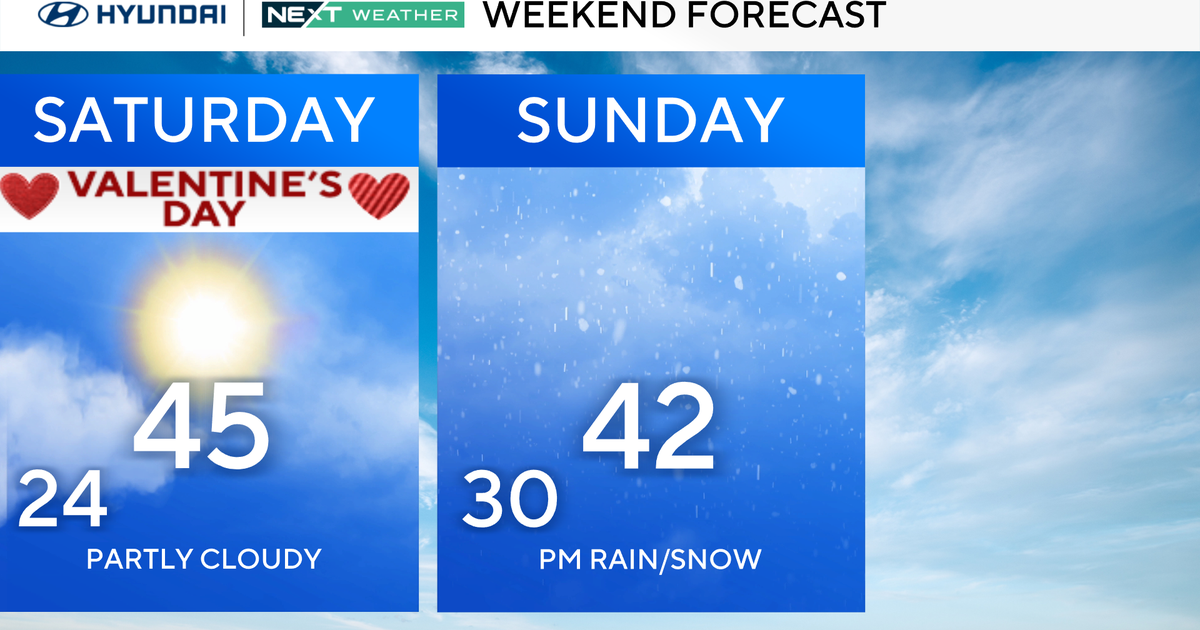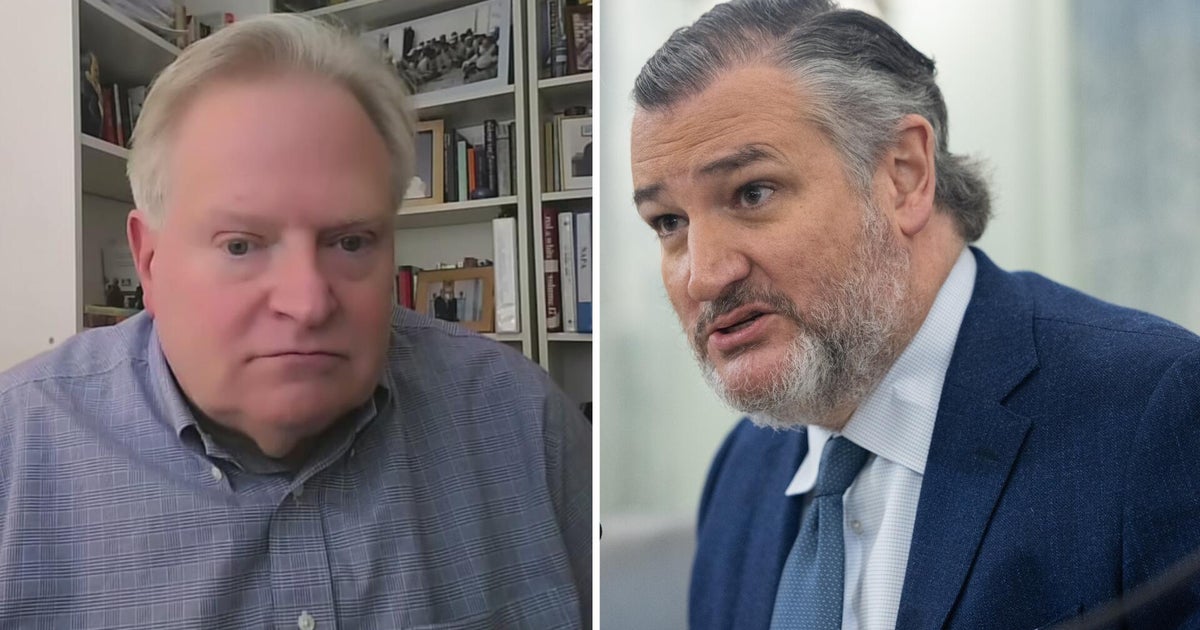Dr. Anthony Fauci: "I didn't create political divisiveness"
A case can be made that no one over the past 20 months has been more involved and more visible in the battle against COVID-19 than Dr. Anthony Fauci.
More than 30 years ago, Fauci was being demonized by AIDS activists for not doing enough. These days the ranks of Fauci critics have multiplied. But if anything in this age of COVID, the charge now is that Fauci has done too much.
Last month, Republican Congressman Madison Cawthorn said, "This 'demon doctor' must never be allowed to escape justice." And Fox News commentator Tucker Carlson charged, "Here's a guy who fully expected to spend his life giving prostate exams … and there he was declaring the ancient Christian calendar null and void."
At home, in one of Washington's comfortable bedroom communities, Dr. Fauci is buffered by a cluster of supportive yard signs.
"Sunday Morning" senior contributor Ted Koppel asked Fauci, "When you see the 'Thank You Dr. Fauci' signs, does that shelter you a little bit?"
"It does, it does," he replied. "The fact that you know people really care about you and understand what you're doing really deflects a lot of the crazy attacks that you get."
But after nearly two years of COVID, three-quarters-of-a-million Americans killed by the pandemic and an unrelenting assault on his competence and honesty, does Fauci have any second thoughts about the past? And fresh thoughts about the next time?
Koppel asked if the pandemic situation could have been different if former President Trump had led in a different way.
"The answer to that is yes," said Fauci. "But when you have leadership, you know, denying that something is as serious as it is, then you have a real problem. So, in that respect, it could have gone differently."
"Does it border on the criminal?"
"I wouldn't say that, because, you know, that generates a lot of, you know, unnecessary sound-biting. It's something, as a public health official, in my mind, is serious. For example, one of the things that to me was most difficult to accept is that we put together a good plan for how we were going to try and dampen down the spread of infection early on, thinking that that was accepted by everybody. And then, the next day you have the president saying, 'Free Michigan. Free Virginia.' I didn't quite understand what the purpose of that was, except to put this misplaced perception about people's individual right to make a decision that supersedes the societal safety. That, to me, is one of the things that, I think, went awry in all of this."
"Did you ever raise that with President Trump?" Koppel asked.
"You know, I didn't have the opportunity to raise it. I was sort of, like, shocked," Fauci said. "And then I didn't speak to him for some time after that. But it was at that point that I realized that I would have to just get out there myself and say things that clearly were going to be contradictory – that it was much worse than we are saying it was, that it's not going to go away tomorrow, it's not going to disappear like magic.
"And unfortunately, you know, that alienated me among certain people in the White House, not necessarily the president himself, but he unleashed, you know, people like Peter Navarro out there writing editorials that I didn't know what I was talking about. He had his comms people do opposition research on me. Could you imagine that? I've never heard of that – doing opposition research on one of your own civil servants? How does that happen?"
At the time, the Trump White House denied that there had been any opposition research targeting Dr. Fauci. In July 2020, White House press secretary Kayleigh McEnany said, "There is no opposition research being dumped on reporters."
But over time, criticism has taken its toll.
Koppel said, "You're losing ground in public polling."
"Yeah."
"Couple of polls lately have begun to indicate that people are losing faith. Are you just preaching to the choir these days?"
"You know, it's very, very tough, because if you keep lying about someone and keep spreading preposterous accusations, that they're going to be some people, if they hear that often enough, are going to believe it. But that's just the way it is. I can't change the fabric of society about social media and how it works."
"I want to read to you a quote from an epidemiologist up at Johns Hopkins University. The question was raised, 'When does the pandemic end?' And she said, 'It doesn't end. We just stop caring, or we care a little less.' What do you think?"
"We are now at 70,000 to 75,000 cases a day, and over a thousand deaths," Fauci said. "That is an unacceptable point to say, 'We've got to live with it.' Absolutely. If you get it way, way, way, way down below that, well below 10,000 a day, that may be something that we can ultimately live with. So to say that, 'Yes, we're just going to stop caring,' we've got to be careful and make sure that stop caring when you don't notice it, not stop caring when it's still killing a thousand people a day in the United States."
"Couple of years ago, it was not uncommon for us to lose 30,000 Americans a year to the flu."
"Right."
"Is that an acceptable level?"
"No, it's not,' Fauci said. "The difference between influenza and COVID-19 is that we don't have a very good vaccine against influenza. So, we cannot accept a high level of deaths to COVID-19 when we have a vaccine that could prevent it."
Koppel asked, "If we had a chance to do it again, should we, do we find the right man or woman who was so highly-regarded and so trusted that we put it all under his or her control?"
"If we had a country where people realized the importance of a communal effort, then we could do that," he replied. "But that's not where our country is right now. Our country is divisive."
"And I guess I should point out that 20 months ago, we thought that nationally-trusted figure – there was a fellow by the name of Anthony Fauci, and for a while, it looked as though you were."
"Right."
"And then?"
"I didn't create political divisiveness," Fauci said. "And that's the thing we're dealing with. We're dealing with the uncomfortable but real element of political divisiveness at a time when we are in the middle of a war against a virus."
"No, but in a few weeks, you're going to be 81 years old. It would not be unreasonable to say, 'You know something, folks? I've done what I could. See ya'.'"
"That's not the way I look at it," Fauci said. "I'm the head of an institute that actually played the major role in the development of the vaccines that have saved now millions of lives from COVID-19. I'm the director of the institute that has now been very important in the basic research in leading to the drugs that will now have an important impact in the treatment of COVID-19. That's what I do.
"So, I'm going to keep doing that until this COVID-19 outbreak is in the rearview mirror, regardless of what anybody says about me, or wants to lie and create crazy fabrications because of political motivations."
For more info:
Story produced by Dustin Stephens. Editor: Ed Givnish.




